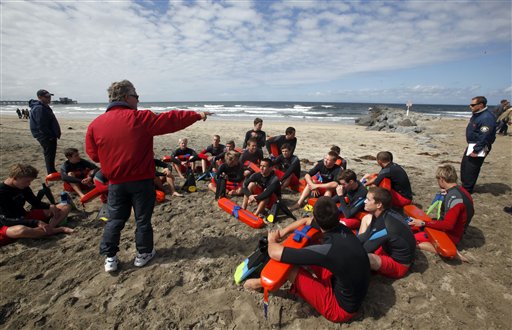How Long Does a Lifeguard Certification Last?
Introduction
Becoming a certified lifeguard is a crucial step for anyone interested in ensuring water safety at pools, beaches, and other aquatic environments. But once you’ve earned that certification, how long does it last? In this article, we’ll explore the duration of a lifeguard certification, renewal requirements, and the importance of staying up-to-date.
Table of Contents
- Understanding Lifeguard Certification
- What is a lifeguard certification?
- Why is it essential for water safety?
- Certification Duration
- Initial certification validity
- Factors affecting certification duration
- Renewal Process
- How to renew your lifeguard certification
- Training and refresher courses
- Staying Current
- The importance of continuous learning
- Keeping skills sharp
- Conclusion
- Lifeguarding is a responsibility
- Regular certification updates ensure competence
1. Understanding Lifeguard Certification
What is a lifeguard certification?
A lifeguard certification is an official recognition that an individual has completed the necessary training to perform lifeguard duties effectively. It covers essential skills such as water rescue techniques, first aid, CPR, and pool management.
Why is it essential for water safety?
Lifeguards play a critical role in preventing drowning incidents and responding to emergencies. Their training ensures they can act swiftly and competently when lives are at stake.
2. Certification Duration
Initial certification validity
The duration of a lifeguard certification varies by organization and location. Typically, an initial certification is valid for one to three years. However, it’s essential to check with the specific certifying agency for precise details.
Factors affecting certification duration
Several factors influence how long your certification remains valid:
- Agency Policies: Different organizations have varying renewal cycles.
- Training Level: Some certifications require additional training or specialization, affecting their duration.
- Work Experience: Lifeguards who gain practical experience may have extended certification periods.
3. Renewal Process
How to renew your lifeguard certification
To maintain your lifeguard certification, follow these steps:
- Stay Informed: Keep track of your certification expiration date.
- Complete Renewal Requirements: Attend refresher courses, update your skills, and pass any necessary exams.
- Submit Documentation: Provide proof of completion to the certifying agency.
Training and refresher courses
Lifeguards must participate in regular training sessions to stay current. These courses reinforce skills, introduce new protocols, and keep lifeguards prepared for emergencies.
4. Staying Current
The importance of continuous learning
Lifeguarding techniques evolve over time. Staying informed about the latest practices ensures that you’re equipped to handle any situation effectively.
Keeping skills sharp
Regular practice and scenario-based training help maintain lifeguarding skills. Attend workshops, practice drills, and participate in mock rescues.
5. Conclusion
Being a lifeguard is more than a job—it’s a commitment to public safety. Regularly updating your certification ensures that you’re ready to protect lives whenever duty calls. Stay vigilant, stay trained, and continue making a difference! 🏊♂️🚤🌊
